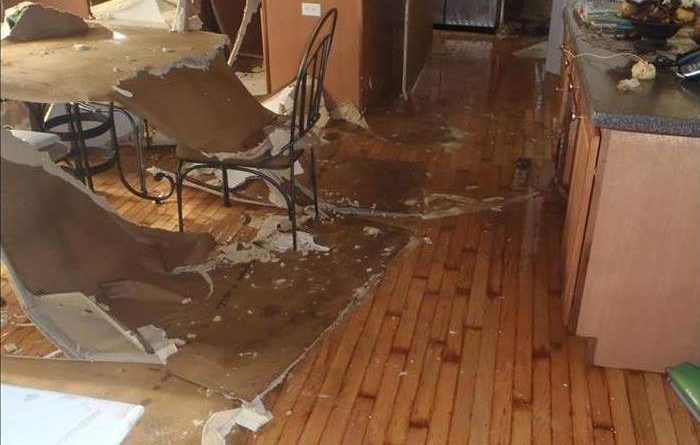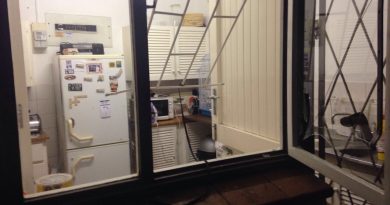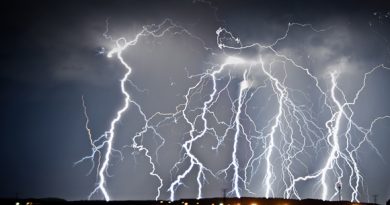Water Damage and Claims from Home and Household Insurance
On Insurance Chat we discuss the response to damage from flooding in several posts. The South African Insurance Association has offered some guidance in a post titled “Statement by the SA Insurance Association on flooding and weather damage”. We also discuss insurance claims for this damage in a post titled “What is Household insurance and does it cover water and flood damage?”
It does however not take a natural disaster or flooding from an external source such as a burst main on your road or overflowing river to cause significant water damage! Most water damage is usually very gradual and remains undetected until the last moment when, suddenly, out of the blue, a wall collapses or a pipe or geyser bursts damaging a host of other household goods and property.
Water Damage and the Home and Household Insurance Policy
Water damage is regarded as the most common cause of property and household insurance claims. Not surprisingly, it is also the area in which most claims for damages are rejected by insurers.
Many homeowners confuse damage arising gradually over time from poor maintenance with once-off and unforeseen catastrophic events like exceptional storms or freak floods.
We always need to refer to the most important question – what is the fine print in your insurance policy and what does YOUR policy say about insurance cover? Insurance is not a “one size fits all”. Insurance is very much an individualised product whereby you as the policyholder are covered for what you have bought.
It is your responsibility to find out whether the water damage was caused by a covered peril such as a storm or flood. If you don’t know what water damage is covered, review your home insurance policy or check with your insurance company now, before any damage occurs.
Your insurer may cover the cost of locating, accessing and repairing the leak, as well as the cost of any water damage restoration. However, ‘trace and access’ cover or ‘Home Emergency’ cover isn’t always offered as standard, so you may want to check if your policy includes these. If you have contents insurance, the policy should cover the cost of replacing contents that was damaged by the water.
‘Accidental damage’ may also be covered for accidents such as over-flowing baths or accidentally drilling into pipes too.
Duty of Care and Maintenance by the Homeowner
It is important to recognize that the insured homeowners not only has rights, but also obligations under the insurance contract.
From an insurance perspective, “the onus falls on homeowners to regularly maintain their homes, checking for leakages or accumulating water so that if water-related damage occurs it cannot be attributed to lack of maintenance and can be genuinely classed as unforeseen”.
Most policies will exclude any damage that is caused by not properly maintaining your property or by preventable damage such as a slow, gradual leak. The best way to avoid this is by keeping your pipes properly maintained all year round, fixing any leaks you discover immediately, and by protecting your property against frozen pipes in cold weather.
Preventative Measures to Curb Water Damage
Maintain the Structural Integrity of the Home
- Building or buying above the flood line and thoroughly scoping how water drainage affects your property in bad weather or during a natural disaster is very important.
- If there is a natural water flow path through your property, “build a drain to help control the flow in wet times and be sure to build structures in such a way that the water can flow freely around them without building up or causing damage.
- Regularly check and maintain the structural integrity of buildings. For example, making sure doors, window frames, sills and roofs are waterproof.
- Inspect your outside walls, windows and doors for any unusual wear and tear. Repair and replace caulk, glazing, weather stripping, and door seals if needed.
- Inspect the screws on fiber cement and iron roofs regularly. Screws on these roofs loosen over time and need to be repaired, replaced or re-sealed as necessary.
- Check the gutters, valleys and roof flashing for blockages before each rainy season and clear these of leaves and debris.
- Anything that impedes the flow of water is likely to cause leaks and consequential damage. Consequential damage resulting from blocked gutters or valleys or perished flashing will not necessarily be covered by your insurer.
- Homeowners should pay close attention to the maintenance of thatched roofs.
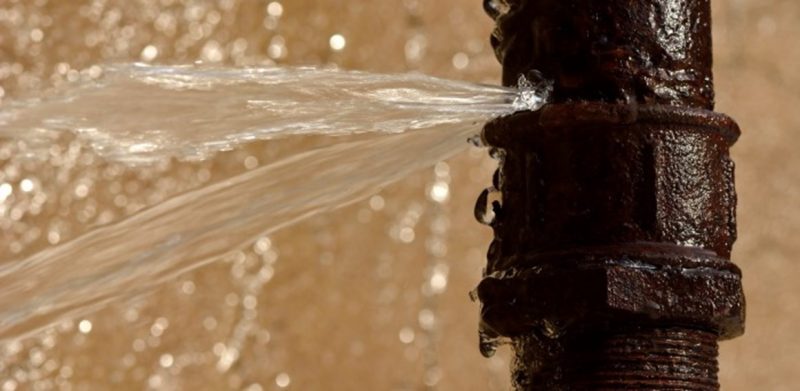 Maintaining Pipes and Checking for Leaks
Maintaining Pipes and Checking for Leaks
The best ways to maintain your pipes all year-round are:
- Stopcocks – know where these are and make sure that you test them regularly as they often seize up. If there is an escape of water/water leak in your home, turning off the stop cock asap can help to limit the level of damage caused.
- Always check and know where the stop cocks are situated for the toilet, sink, geyser, washing machine, shower etc.
- Consider fitting a leak detection device which will monitor your usual water use and turn off the water if it suspects a leak.
- Use professionals to install any new appliances which require plumbing.
- Regularly check the pipes where your appliances are plumbed in for any looseness, leaks or drips. In areas where pipes are covered but that you still have access to (e.g. behind removable bath panels, toilet cistern panels and underneath kitchen units, where accessible,) it’s a good idea to take a look every now to make sure there aren’t any small leaks which could become major.
- Manage what goes into the drain. Clean drains regularly if you suspect a blockage. Substances such as fats and oils from cooking, produce stickers, baby wipes, sanitary products and even hair can all cause clogs in drains and toilets.
- Check and detect leaks from taps, toilets, sinks, baths and showers and make sure you replace any damaged sealant, tiles or cracked shower trays as soon as you spot it.
- Keep a close eye on your monthly water bill. If you receive a water bill that is too high, for no apparent reason, there may be a water leak somewhere on your property.
- If you suspect or have uncovered a leak in your home, contact a reliable maintenance company to repair the leak immediately. Never take small cracks or leaks for granted, they may cause major damages to a home and its contents if ignored.
- You can use your water meter to check for any leaks – make sure nothing is using any water in the property, then turn your stopcock off and note the reading. Check again after 1-2 hours to see if the meter reading has changed. If so, it’s likely that there is a leak somewhere.
- Make sure to repair any loose or cracked tiles in your shower and to fix any damaged grout lines every six months.
- Drill with Caution. If you are doing any drilling/DIY, make sure you know where any water pipes are before you put that drill into the wall (you can get a stud finder to help you locate them).
- Have the seals and valves on your geyser looked at from time to time. “When you get the plumber in for routine maintenance, get him to give your geyser a once over.
- Double-check the connection to your washing machine and avoid over-tightening.
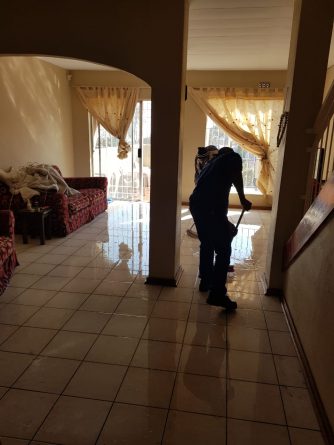 When you are away from Home
When you are away from Home
- When going on holiday and leaving the property unoccupied for any length of time, it’s best to shut down the water supply if you can and it is safe to do so.
- If a pipe leaks while you are away it may flow unchecked for weeks damaging your home and destroying most of your household contents.
- It’s best to use appliances when you are at home as opposed to setting them on a timer – that way if there is a major deluge of water or leak, you will spot it before it damages your home.
When there is Municipal Repairs and Water Interruption
- Turn off the main water supply if your water has been cut off for municipal repairs.
- When the municipal main is open, air may enter the system causing airlocks and blockages that could damage geysers and pipes.
- The mains should only be turned on again after the municipal repairs have been completed. When the municipal supply is interrupted “you also run the risk of leaving taps on, coming back to find your home flooded if the municipal system was switched on in your absence.
When water damage has occurred
- You should immediately attempt to find and stop leaks at their source.
- It is important to dry all wet areas and provide air circulation to aid in the drying process.
- Cover any areas with a tarp to prevent more water damage.
- Covering, drying, and dehumidifying wet areas can help minimize the possibility that mould will develop.
It is important that you should immediately report any water damage to your insurer – either directly or via your broker.
Also view:
Statement by the SA Insurance Association on flooding and weather damage
What is Household insurance and does it cover water and flood damage?

